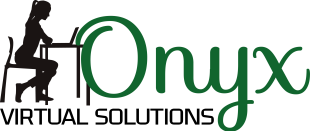Employer Solutions

Benefits Employees Can Rely On.
LegalShield takes the stress and strain of legal and identity theft issues off employees’ shoulders and puts their focus back on work, where it belongs. With more and more legal and identity theft situations arising daily, it can be difficult for employees to handle the paperwork, phone calls, and money required to resolve an issue without cutting into work time.
From the trivial to the traumatic and everything in between, our legal and identity theft protection plans are designed to meet the most common issues employees and their families encounter. Plus, at one low monthly fee, it’s completely affordable.
QUALIFIED PLANS
One of the benefits of owning a business is that you have tax-favored options to save for retirement that non-business owners don’t have. Your business can sponsor a qualified plan to drive most of your benefits. This is a classic way to shift business dollars to you for retirement.
Benefits of a qualified plan include:
- Contributions to the plan are tax-deductible to the business.
- Contributions are not currently taxable to the participants.
- Contributions made on behalf of employees can be paid with dollars that would have otherwise been spent on taxes.
- Earnings on contributions grow tax deferred.
- Qualified plans are protected from creditors.
- Provides a valuable benefit to employees and helps to attract and retain employees.
- Taxation of benefits is deferred until taken in the future.
There are essentially two categories of qualified plans – Defined Contribution Plans and Defined Benefit Plans.
With defined contribution plans, you define how much money you want to contribute to the plan. What is available for retirement will depend on the contributions actually made and the earnings on those contributions.
With defined benefit plans, your retirement benefit is defined under the plan. (For example, 75% of the highest five consecutive years’ salary over the last 10 years.) The contribution amount will be based on several factors, including the promised benefit, the years until retirement, and an interest rate assumption.
Profit Sharing Plans
There are many defined contribution plan options, but they generally fall into three distinct categories – profit-sharing plans being one of them. One well-known profit-sharing plan type is the 401(k).
The General Advantages of Profit-Sharing Plans:
- Allows you to change the plan contribution each year or even decide not to make a contribution in certain years.
- You can establish eligibility requirements that employees must meet to receive a contribution.
- It can be designed to favor select employees, including you.
Within the Profit Sharing category, there are a number of design options. Which profit-sharing plan is best for your business?
- 401(k) Plans
The advantages of 401(k) plans:
- Allow employees to save money for their retirement.
- Employee salary deferrals may be made pre-tax, post-tax, or a combination.
- Employees have flexibility in how much they contribute up to certain limits.
- Employers may choose to match some of the employees’ contributions.
Within the 401(k) plan category, there are several plan options. Which 401(k) plan is best for your business?
Types of Defined Benefit Plans
The advantage of Defined Benefit plans:
- Allows for substantially larger, tax-deductible contributions
- The retirement benefit is known in advance
Which Defined Benefit plan is best for your business?
NON-QUALIFIED PLANS
Part of sound business practice is to assure that your key people are compensated in a way that rewards their past performance and encourages future performance. There are several tools available to help you provide targeted benefits to you and your key people. It is not unusual for a business to use more than one of these concepts – building a program that helps meet your unique needs.
- Non-qualified plans are plans that you can use to provide additional benefits to yourself and your key employees and executives.
- Non-qualified plans are often used along with a qualified plan as an additional benefit to attract and retain key employees. They also offer greater flexibility in who can be covered under the program and are generally easy to establish and administer.
Key Person Protection
If you are like many business owners, much of the success of your business depends on your employees. Oftentimes, there is a core group of contributors who help drive your business. Whether part owners or important employees, they bring value to the table. You want to make sure that your business will continue to be successful even if you lose their expertise.
So how do you protect your business when the financial security of your business is threatened by the death of a key person?
Key Person Life Insurance:
You can help cover the financial loss your business would experience at the death of a key employee by insuring your key people.
Executive Bonus Plan:
An Executive Bonus Plan, a Section 162 plan, allows a business to provide personally owned life insurance as a tax-deductible fringe benefit to select key employees.
If the benefit is for a non-owner employee, an executive bonus plan is appropriate for all business forms, including professional corporations, partnerships, and LLCs. However, this plan does not offer any tax benefit for business owners if the business is an S-Corp, partnership, or LLC taxed as a partnership.
